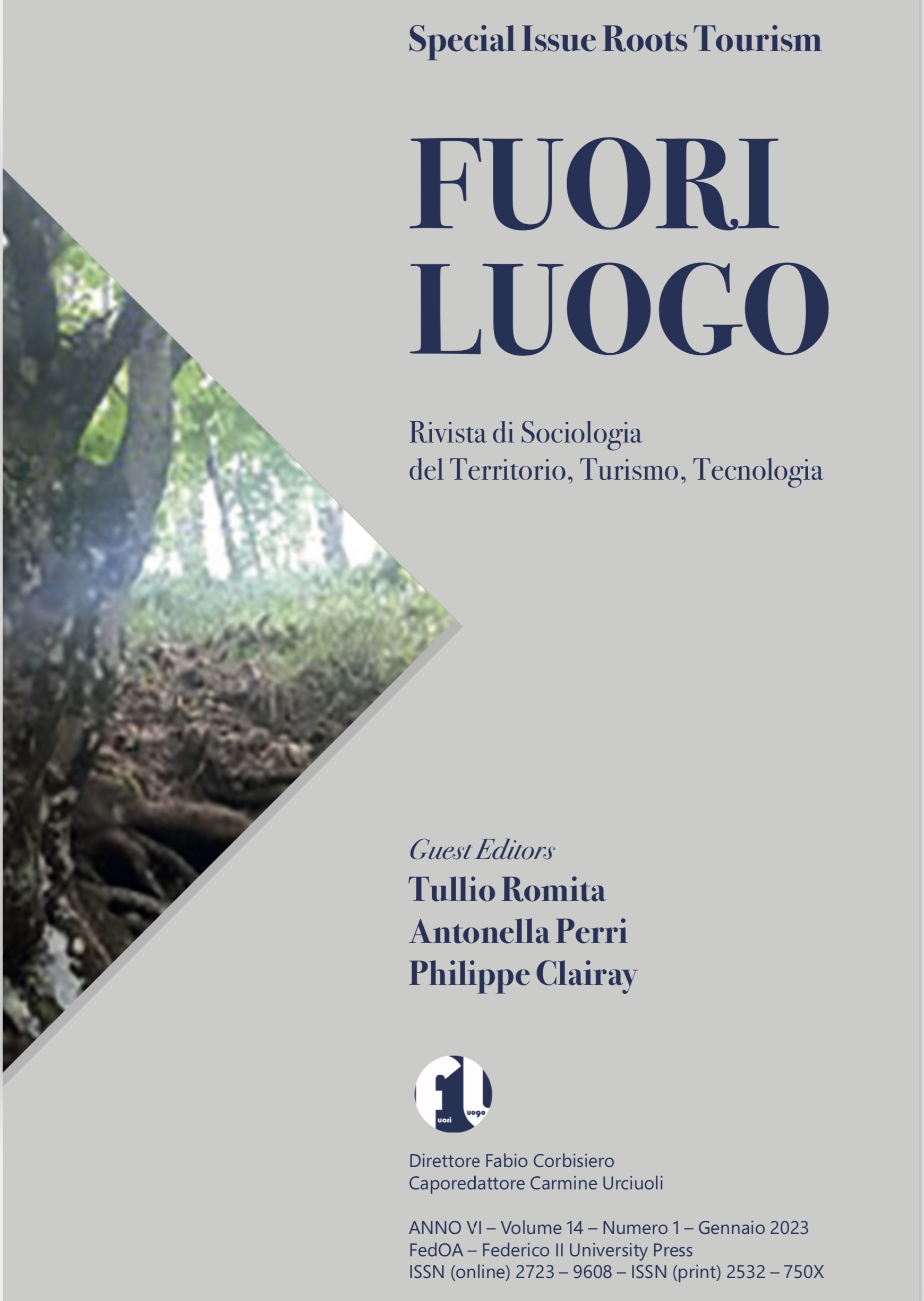Multiple Identities: the Perception of the Root Tourist in the Host Communities
Abstract
With the expression “Root Tourism”, one commonly intends the social phenomenon that leads emigrants and/or their descendents to return, frequently or occasionally, to their place of origin, on the basis of motivation linked, in a rather predominant way, to strengthen and/or to deepen one’s family identity (Perri, 2020). In this form of tourism, the decisive and absolutely dominating factor that drives the decision to make the journey is, therefore, connected to the knowledge and reconstruction of the person’s family history.
The recomposition of identity which is targeted through the roots journey, in the case of the traveler who is an emigranted first generation, see satisfaction in visit the physical, social and cultural spaces that are already known and experienced. When, however, a descendant of emigrants takes on this journey, such as a relative (children, grandchildren, etc.), that is a person ahead in the generational line, will find satisfaction, by visiting in places where one’s ancestors were from, where theese worked and lived, and where they’re buried, adding up the information acquired by consulting records useful in the reconstruction of their family tree, through experiential interviews with the local population (relatives, friends, etc.).
We define this type of travel experiences as “touristic”, as it is based on a temporary and non-instrumental stay, and on travelers who take on daily behaviors and visitation methods that essentially make them indistinguishable from other ranges of tourists (Romita and Perri, 2009), and where the absence of a daily relationship and physical presence renders the subjects as “other”, just as by definition all tourists are (Romita, 2021; Cohen, 1979), placing them in an alienating condition from the eyes of the local host community, which increases over time (Simmel, 1998; Schutz, 2013).
However, the very aims of the trip make the root tourist, as it is perhaps easily understandable, a rather particular type of tourist, almost unique. The load of expectations and the emotional intensity that accompany the departure, transit and arrival are experienced with anxiety, as the experience that will be created could also lead to not only the “simple” desired identity reconstruction, but also to perhaps a partial redefinition of one’s own family’s identity situation.
Whatever the case may be, the condition of alienation that we mentioned earlier belongs to all tourists, in the case of the root tourist, this alienation brings with it an identity that is the fruit of a flexible subjectivity. Identities develop and shape through everyday life and through the narration of family history linked to cultural origins. Therefore, identities, more or less hybrid or multiple, sometimes manifest in crises, as they are torn between the prevalent belonging to the original culture or to that of the places where one lives, or through languages resulting from a semantic compromise (between the original language and the acquired language), and which, from time to time, are defined through social relationships, the contingencies in which they find themselves and the consequent contaminations. People for whom the concept of “place” brings a constant redefinition to the notions of belonging, citizenship, frontier.
The specific condition of the root tourist’s alienation has significant repercussions in the perception that the local host communities have of this social figure. The results of over ten years of research dedicated to the study of tourism and the root tourist, which we will use to develop this work, brings to conclusion that what we call "root tourism" for the local host communities is only partly so, and that this perception depends on the process of breaking down the multiple identities of these travelers.
Downloads
Copyright (c) 2023 Tullio Romita

This work is licensed under a Creative Commons Attribution 4.0 International License.




